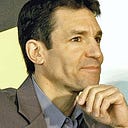Member-only story
We Already Know the Best Diet for Humans
Don’t worry: It doesn’t involve counting calories or nutrient scapegoats
A funny thing happened on the way to eating better, or trying to: We broke science.
Science is the best method we’ve ever devised to answer questions we cannot answer with casual observations; it extends our observations and senses to the realms of the unseeable, unhearable and untouchable; to see beyond the limits of our eyes, and hear beyond the limits of our ears. It provides methods to defend us from our native biases, to account for variables we have not even considered, and to measure the differences between causation and fluke.
But science was never intended to question the reliable answers we already had. Science can and should certainly invite us to question answers, too, but not all answers are subject to doubt.
An example? Toss an apple up in the air, and you know with absolute certainty that it will fall back down, not float away.
Imagine that the work of some physicist, between Newton’s day and now, had led to a different conclusion, one that showed the apple must float away. Well, then, that “science” would be wrong. The new theory would not prompt us to doubt the fate of tossed apples; the discrepancy between theory and established reality would be cause for those physicists to go back to their drawing board.
Much the same is true in nutrition. Every wild species on the planet knows to eat the diet to which it is adapted. Carnivores know to eat meat; herbivores know to eat leaves and grass; koalas know to eat eucalyptus, and giant pandas know to eat bamboo. We, too, are animals; we too, once knew what to eat based on that same blend of cultural experience and instinct. Science should only have served to enhance our native understanding. Instead, we have so abused the applications of science to nutrition that while pandas keep eating bamboo, humans are being bamboozled.
Nutrition scientists compete to be noticed, and some surrender to the dangerous temptations of notoriety. This results in questions that play to pop culture interests rather than scientific merit, such as “Which is better: low fat or low carb?” The question is destitute of meaning: High-fat foods range…

